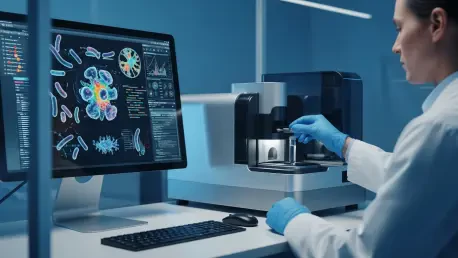
Ivan Kairatov is a leading expert in biopharmaceutical innovation with a distinguished career in research and development, specializing in the intersection of artificial intelligence and synthetic biology. As a key contributor to the development of high-throughput protein engineering frameworks, he

The clinical obsession with GLP-1 receptor agonists has finally hit a biological wall where the focus shifts from the drug molecule itself to the trillions of microbes residing within the human gut. This shift marks a transition from viewing the microbiome as a passive bystander to recognizing it

The global escalation of Type 2 Diabetes Mellitus has fundamentally transformed how medical researchers approach metabolic dysfunction, shifting the focus from purely endocrine pathways to the complex microbial ecosystems residing within the human digestive tract. This internal community, often

The century-old electrocardiogram, a cornerstone of cardiac diagnostics, is being fundamentally reinvented by artificial intelligence, unlocking predictive capabilities that were once the domain of science fiction. This fusion of computational power and medical data represents a significant

Today we're joined by Ivan Kairatov, a biopharma expert whose work at the intersection of technology and oncology is reshaping our understanding of cancer. We'll be exploring a breakthrough in liver cancer research, delving into the specific molecular triggers that drive tumor growth, the

We are joined today by Ivan Kairatov, a biopharma expert whose groundbreaking research is rewriting our fundamental understanding of how we learn. For over a century, we've believed that repetition is the key to learning, but his work reveals that timing is the far more critical ingredient. Our